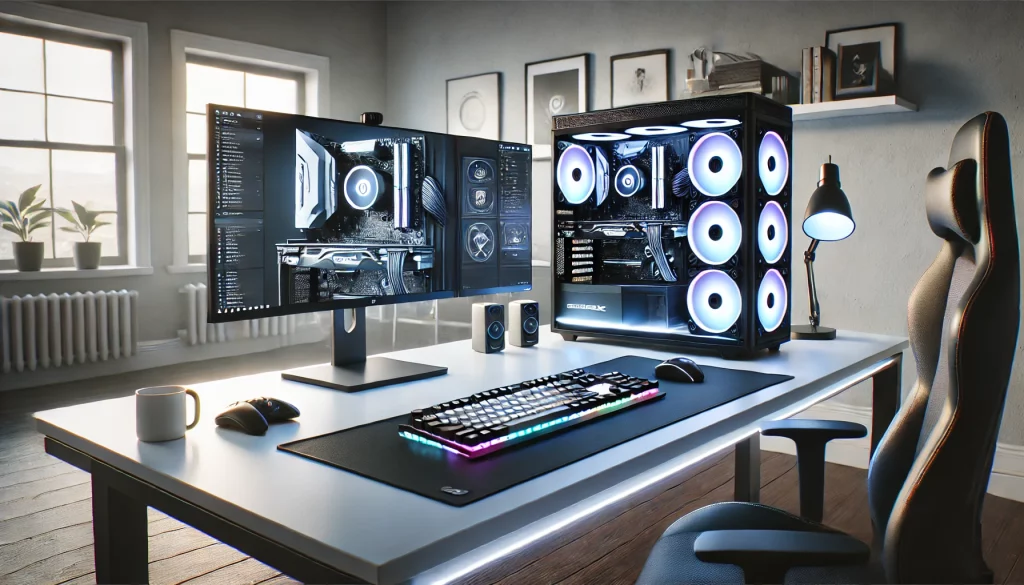Building or upgrading your gaming PC? Choosing the right casing is just as important as selecting your components. A good gaming PC casing not only protects your hardware but also optimizes airflow, cooling, and cable management. Here’s a practical guide to help you make the most out of your gaming PC case.
1. Choose the Right Size
Gaming PC cases come in various sizes—full tower, mid tower, and mini tower. Make sure to select one that can comfortably fit all your components. Larger cases allow for more hardware and better airflow, while smaller ones are more compact but may limit expansion options.
2. Ensure Proper Airflow
Good airflow is essential to keep your gaming PC cool, especially during intense gaming sessions. Position your fans strategically—typically, intake fans are placed at the front to pull in cool air, while exhaust fans at the back or top expel warm air. Keep the inside of the case free from clutter to maximize airflow.
3. Plan Your Cable Management
Poor cable management can restrict airflow and make your system look messy. Most PC cases come with built-in compartments or channels for organizing cables. Use these to route cables neatly, ensuring that they don’t block airflow or touch hot components.
4. Install Dust Filters
Many gaming cases are equipped with dust filters, especially near intake fans. These filters help prevent dust from entering your system. Make it a habit to clean them regularly to ensure optimal performance and prevent overheating.
5. Maximize Cooling Options
Most cases are designed to accommodate different types of cooling solutions—air or liquid cooling. If you’re using air cooling, make sure your case has enough space for larger heatsinks or additional fans. For liquid cooling, check whether your case supports radiators and has the necessary mounting options.
6. Take Advantage of Expansion Slots
If you’re planning on adding more components like extra graphics cards, storage, or expansion cards, make sure your case has enough expansion slots. Having these slots available allows you to upgrade your system without having to replace the entire case.
7. Check Compatibility with Components
Before buying or setting up your case, ensure it’s compatible with your motherboard, power supply, and other hardware. The case should also have enough clearance for long graphics cards or tall CPU coolers if you plan on using high-performance components.
A well-chosen gaming PC case not only looks great but also keeps your system running efficiently and cool. By taking advantage of its features, maintaining proper airflow, and managing your cables, you’ll ensure that your gaming rig performs at its best for years to come.

